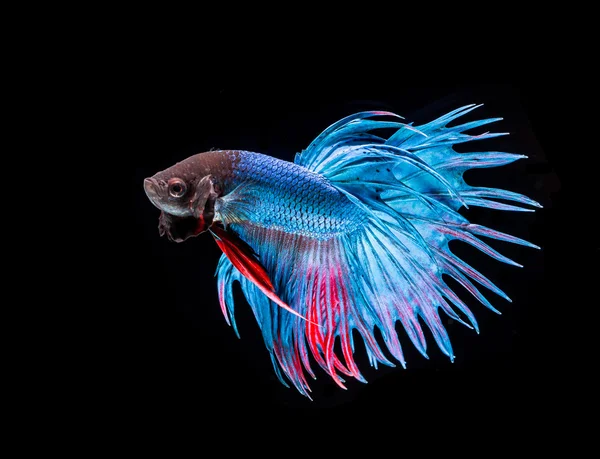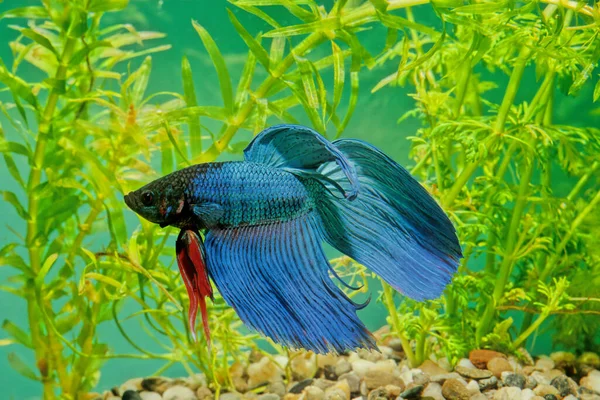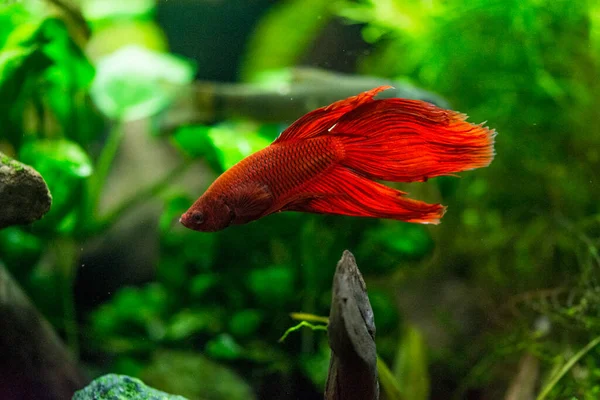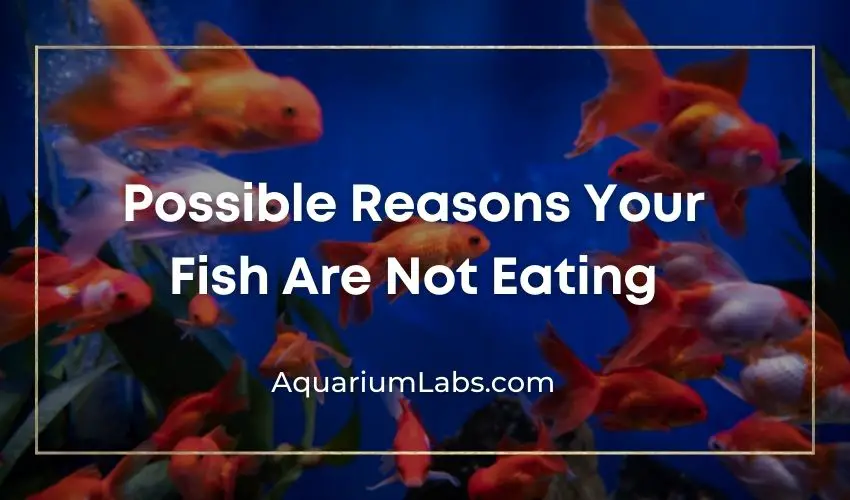Are you worried about your fish not eating? Is your fish eating less than it used to? In this article, I will review possible reasons affecting your fish’s ability to eat.
Several factors could lead to your fish’s lack of appetite or poor eating. Many of these can be remedied before they become longtime ailments or result in the death of your aquarium fish.
One of the leading causes of loss of appetite in a fish is disease. Unhealthy water quality could also cause it. When this situation arises, you should ask yourself if you are practicing the wrong husbandry.
Other common reasons for your fish not feeling hungry are temperature changes, lack of space, or introduction to a new aquarium with not-so-comfortable tank water.
When your ordinarily healthy fish is showing signs of being unwell and is avoiding food, you need to be aware that there is an issue somewhere that could have resulted in this situation for your fish.
#1. Poor Water Quality
If you are determined to keep a healthy fish, you should ensure that you constantly change the water you keep it in. Fishes swim, poo, and urinate in their aquarium water, and if this is not changed frequently, it could result in ammonia buildup.
A rise in chemicals in its water could leave your fish feeling awful. Hence, poor water quality might be why your fish stops eating for a few days. Water hardness is often a function of cold water, which is outside the correct temperature that your species requires to start eating.

To avert this, you can procure a suitable water tank test kit to test the water quality and maintain a balanced pH and protect your animal from falling sick.
#2. Wrong Types of Food
A beginner’s mistake for most aquarium owners is to feed the fish with the wrong type of food. There are multiple options available, and the choice might be difficult.
To ensure that you feed your fish right, make sure you read the manufacturer’s label and select one suitable for your pet fish.
For reef fish food, it might be better to feed them with frozen meat foods.
Ensure the feed you are providing matches the correct species, as the feed necessary for your reef fish might not be the right choice for your freshwater fish.
To properly feed your fish, mix the frozen foods, or whatever food type you are using, with other meals like live food and other frozen food to ensure that you are feeding them a varied diet.
#3. Unbalanced Temperature in Water Can Affect Your Fish’s Appetite
Most fish are comfortable with the water temperature they would experience if they were in their natural habitat.
Most species, like freshwater, saltwater, and reef fish, live comfortably in a tank with a temperature level of 74 to 80 degrees FH. Therefore you need the proper water parameters for your fish.
Your fish will experience a drop in metabolism if the temperature in the tank drops below 74 degrees FH. Fishes, unlike humans, are not equipped to regulate their temperature, so they can only depend on the temperature of the water.
When you notice your fish looking sluggish or sleepy, it is often a result of a drop in its body temperature below the optimal level. You’ll often see that they are swimming as usual but won’t eat like they used to. This situation must be immediately remedied, or it will lead to starvation.
Don’t be quick to make changes to your aquarium since, unlike the lake or ocean, aquariums do not contain that much water. Your fish will therefore respond to changes in the water parameters quickly, with little tolerance.
High water temperatures in your aquarium render your fish hyperactive, but this is dangerous to the health of your fish.
Hot water increases the stress level of your fish and makes it difficult for it to get oxygenated. Stress can prevent fish from eating.
Check your tank’s water with an aquarium thermometer to understand if your fish are uncomfortable with their water temperature.
#4. Stress Can Result in Your Fish Not Eating
Stress is prevalent in fish. Most fish kept in aquariums came from natural habitats where they could hide from bigger fish.
Hence, if your tank is not adequately equipped with a place for the fish to hide, it might lead to stress in the fish. Just like humans, fish require the safety that comes with a hiding place if they are to get the much-needed regular shut-eye to maintain their overall health.
The provision of dense vegetation and aquatic caves could help increase the rest of your fish and help relieve stress and make it feel relaxed enough to eat.
#5. Disease Can Prevent Your Fish from Eating Fish Food
As in humans, a disease in fish is an unnatural state of the body. When your fish suffers from ich (Ichthyophthirius multifiliis), which affects the exterior part of the fish, this condition could lead to the death of your fish if you do not quickly treat it. Ich in fish is highly contagious and can quickly spread.
Hence, it is important to ensure that your fish is adequately taken care of. Most fish will fall sick when placed in dirty water and show other symptoms aside from not being hungry, such as a swollen abdomen.
#6. Presence of Parasites Can Affect the Ability of Aquarium Fish to Eat
Despite living underwater, your fish is not less prone to parasites. Fish carry parasitic copepods, monogeneans, and leeches, and the presence of these parasites can cause crankiness in your fish.

When a parasite infests a body, it lives inside the host and benefits from it and, in the process, causes discomfort for the host, in this case, your fish.
#7. Infection Has the Propensity to Have Devastating Effect on How Your Fish Eat
The contraction of parasites can make your fish likelier to get infected. These parasites can cause the immune system to grow weaker and thus make your fish prone to infections.
Your fish often swims around in tight spaces in the pond, which might result in cuts on their lower fin or other parts of the body. Frequently these cuts and abrasions go unnoticed. Still, a fish whose system is already weakened by a parasite might become prone to severe infection.
Both freshwater and saltwater aquariums are susceptible to fungal infection, with the most prominent disease being cotton on the fin, also referred to as the “Cotton wool disease.”
Cotton fin is found where an infection or parasite has affected the fish. The fungus is highly contagious and can lead to the death of all the fish in an aquarium if left untreated.
Aquarium keepers often worry about bacterial infections. One of the nasty bacteria usually found in fish in freshwater is Aeromonas, a bacterium that thrives in aquarium water like other bacteria in below-par water conditions.
Such conditions will often result in the death of the host. An infected fish exudes signs ranging from bulging eyes and ascites to raggedy-looking fins.
Constant water changes and quality water use can significantly reduce the risk of infection and mitigate disease outbreaks. Therefore, simply keeping your aquarium clean will go a long way to improving the appetite of your fish.
#8. Poor Lighting Affects Your Fish
Keeping your bedroom illuminated doesn’t necessarily mean your fish is getting sufficient lighting. This is particularly true for a reef aquarium. The bright colors often noticeable in some fish, especially ones found in a reef aquarium, are more vivid than those in freshwater fish because a bacterium is alive in them.
Unlike the aforementioned parasites, these bacteria reside in the hosts and offer significant health benefits. This is called “symbiosis,” as both organisms help each other.
To survive, though, these bacteria rely on a particular kind of light. It is essential to use suitable bulbs with a unique light spectrum to ensure the proper development of your fish’s aquatic friends.
Since they rely on each other for healthy living, what affects one organism will also touch the other organism; hence you should do proper research when getting your aquarium-appropriate lighting.
LED aquarium lighting manufacturers often have different kinds of light you can select. Your research will guide you in choosing the light range that best suits your fish.
#9. Picky Stubborn Fish
You might wonder why your fish doesn’t eat the food you have given it. It might be because you have switched up its meal, and it does not like it; it will take it in at first, only to spit it out later. Fishes can be relatively stubborn creatures.
Some older fish might prefer frozen foods, while others prefer live foods or other foods. Make sure you space the food by a few hours, as most fish cannot eat both at the same time.
Aquarium lovers have noticed that for those who intend to feed their fish with a different variety, a slight shift in the properties of the food might completely derail fish from eating.
Therefore you should try to feed your fish with the right food and note when to give it freeze-dried foods or other fish food that will make it difficult for it to stop eating.
#10. Pregnancy
During pregnancy, fish are nervous and uncomfortable in the presence of other fish.
They may abandon their usual dietary habits owing to stress, but most pregnant fish will eat less or cease eating before giving birth.
You’ll notice a dark triangular mark on their belly, near the lower fin, as their abdomens expand. Sometimes you can even see fry eyes through your fish’s body.
If you detect any of these indications, move the pregnant fish to a breeding tank where it can give birth in peace.
Avoid Overfeeding Your Fish, As Uneaten Food Impairs a Healthy Environment
Sometimes your pet will not want to eat more food simply because it has had enough. Overfeeding your fish could have a detrimental effect on your tank in the long run.
When your fish is already full, it will naturally not want to eat more. Therefore, having excess food could lead to it decomposing and affecting the overall tank conditions, ultimately resulting in your fish falling sick.
Having unclean water in the tank is an indication of an unhealthy fish. When you notice this residue, you must find a more appealing feed for your fish and encourage it to eat better.

When you feed your fish something it is excited to eat, your fish will be quite happy to eat it, and you can tell instantly.
Fishes who like what they’re offered are usually hyperactive and will swim around joyously while they eat. Many reef fish are captured from the wild and still retain their instinct in the wild.
When buying fish food, ensure that the specific class of meal purchased matches the demands of your fish. Some fish require particular nutrients other than what your regular pellet or flake food provides.
Giant catfish, bettas, and triggerfish are various species that require specific meaty diets to survive. It would be best if you took special notes to include other foods in its diet.
Feeding these rather particular fish species, the regular pellet food may not offer the right protein they desire. Moreover, these fish depend on the flesh of some scaly aquatic animals like squid to file down their teeth.
If they don’t get their teeth filed, they might overgrow, which leads to the inability to eat.
Take Your Fish to The Vet
It is never a bad idea to take your fish to the vet when you notice that it has been refusing to eat. Fish not eating is a truly bad sign, and you never can tell how long they can survive starvation.
If you lack the proper experience in the field or just want to be on the safe side, you might be better off seeking a professional opinion. With a veterinarian, it won’t be long before they pinpoint the cause of the lack of appetite and ensure that these issues are fixed.
They will identify the likely cause and narrow it down, making you a happy fish owner with a healthy fish.
Conclusion
We have covered several of the most common factors leading to your fish not eating. One thing that these factors have in common is that your fish should be sufficiently safe from them with the proper husbandry.
Husbandry covers significant areas of your fish life, including but not limited to the quality of water in the tank and the proper lighting, temperature, and diet. When any of these factors are awry, it might lead your fish not to eat freeze-dried, frozen, or pellet food.
As a fish lover, it is paramount that you pay close attention to all of these factors to create a natural environment for your fish. With this in place, your fish is likely to grow healthier and live longer.
Keeping a clean tank, ensuring proper meals for your fish, maintaining the right temperature, and adhering to all other factors that will reduce the stress level of fish in the tank will help you improve your fish’s eating habits.

